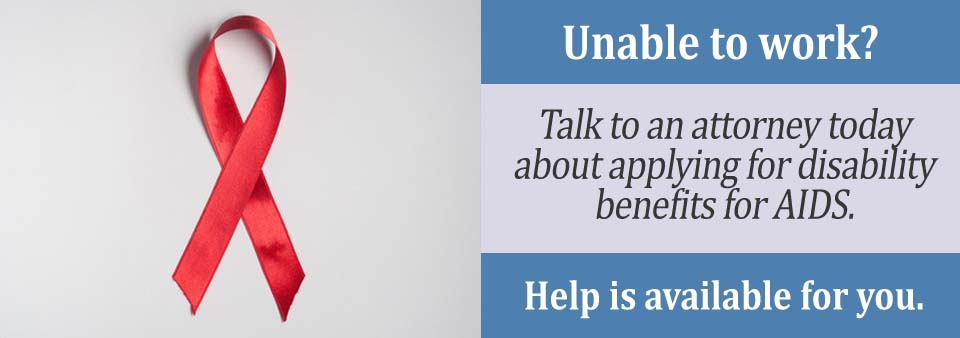People worldwide who have been affected by AIDS are taking note of World AIDS Day, which falls on December 1st. Whether you’re an AIDS patient or someone who supports someone with the illness, it’s your chance to join together in the fight against AIDS and its precursor, HIV. It’s also a great time to remember those with AIDS who’ve died since the beginning of the epidemic.
Across the world, there are nearly 37 million people who have the HIV virus. Since the beginning of the epidemic, more than 35 million people have died of AIDS-related illnesses. During the past year, more than one million people have died from AIDS complications worldwide. AIDS will go down as one of the worst global epidemics to have occurred.
While many strides have been made in the HIV virus, which has likely helped to prevent many HIV complications, there’s still much to be done. World AIDS Day can help to keep the illness in the public and government eye. This can serve as a reminder that awareness, prevention, improving stigma related to the illness, and raising more money for research is still desperately needed.
Meanwhile, many people who live with the disease are unable to work. If you suffer from AIDS and your condition prevents you from working, there is hope. Help may be available to you in the form of disability payments from the Social Security Administration (SSA).
Qualifying for Disability with an AIDS Diagnosis
The SSA has guidelines in place that help them decide on whether or not a person qualifies for disability benefits. The HIV virus damages the cells of your immune system that help prevent many diseases and infections. This can leave you susceptible to getting sick.

While many people with HIV can be symptom-free for years, some progress to AIDS or the Acquired Immunodeficiency Syndrome. When AIDS occurs, it causes a response in the immune system that allows your organs to be attacked. Your body can become weakened through attacks and you can become seriously ill to the point that you can’t work.
If you have a documented case of AIDS, chances are very good that you’ll be approved for disability benefits if you apply for them. Even if your HIV hasn’t progressed to AIDS, you may still qualify for benefits if your condition is severe enough.
The SSA will examine how well you’re able to function throughout the day in addition to your medical condition and history.
For more information on how to qualify for Social Security disability benefits with AIDS, read our article on meeting qualifying criteria with AIDS.
How is Eligibility Determined?
The SSA has criteria in place for determining eligibility for many disorders. A section of their website, known as the “Blue Book”, lists specific listings for many ailments and diseases and the criteria that qualify patients for benefits. HIV and AIDS have a listing in section 14.00 under “Immune System Disorders."
Criteria can be found in the section to help patients and their doctors determine whether they are eligible for benefits. If you’re a documented AIDS patient with the qualifying and required medical records, you’ll likely obtain a relatively quick approval for benefits.
In order for the SSA to consider your disability due to AIDS, the SSA needs copies of your medical records, including all related laboratory tests, imaging, or biopsy reports.
The following are considered acceptable documentation of your illness:
- An HIV antibody screening test, confirmed by another HIV antibody test such as the Western blot(immunoblot), an immunofluorescence assay, or an HIV-1/HIV-2 antibody differentiation immunoassay
- An HIV nucleic acid (DNA or RNA) detection test such as the PCR
- An HIV p24 antigen test (p24Ag)
- Isolation of HIV in viral culture
- Any other test highly specific for detection of HIV consistent with clinical manifestations
Records of other illnesses that are strongly linked to HIV and AIDS or those that rarely occur outside of the HIV setting are also helpful. Some of these illnesses include pneumocystis pneumonia, Multicentric Castleman disease, primary central nervous system lymphoma, primary effusion lymphoma, and pulmonary Kaposi sarcoma. This list is not all-inclusive; there are other AIDS-related illnesses.
If you’ve had HIV-associated dementia, a CD4 measurement that is evidence of AIDS, or any hospitalization related to your illness, the SSA will consider those as evidence as well.
If for some reason, the SSA doesn’t find that you conclusively meet a listing, the SSA will still consider your case.
It’s important to note that many factors weigh into the SSA’s decision to approve your case. The clinical picture of your illness, your treatment options and history, response and side effects of treatments, and any treatment that interferes with your ability to function from day-to-day all factor in.
The point is that there are so many factors in determining eligibility, don’t delay in applying. Having a challenging diagnosis such as AIDS is devastating enough. Hopefully, the financial impacts of AIDS can be lessened by getting approved for disability through the Social Security Administration.
How to Apply for Social Security
You can apply for disability and present your case one of three ways. First, you can call the SSA at 1-800-772-1213. Alternatively, you can apply online or in person at your nearest Social Security Administration office. Keep in mind that if you’re denied benefits for some reason, don’t give up. Seek the help of an experienced disability attorney to help you appeal your claim. You can speak with an attorney by filling out our Free Disability Evaluation.
An attorney who specializes in getting approval for SSA disability knows the tricks of the trade and can usually increase your chances for approval. Time is of the essence - you have 60 days to do so once you’re denied the first time.